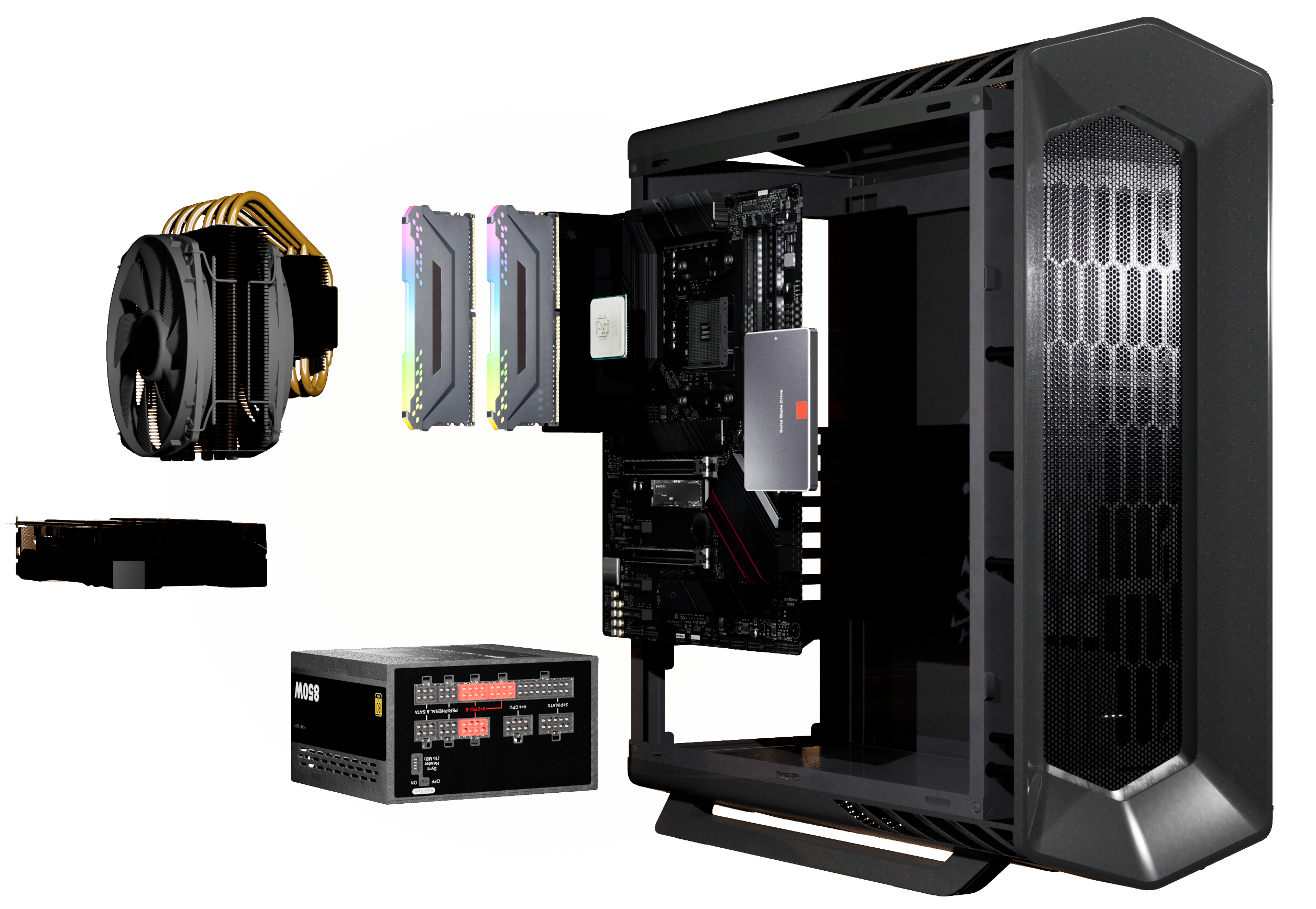
In PC Virtual LAB you’ll learn the different components of your computer. Different levels test your skill and knowledge in assembling computers. Put your computer skills into practice.
Download free on PC and VR
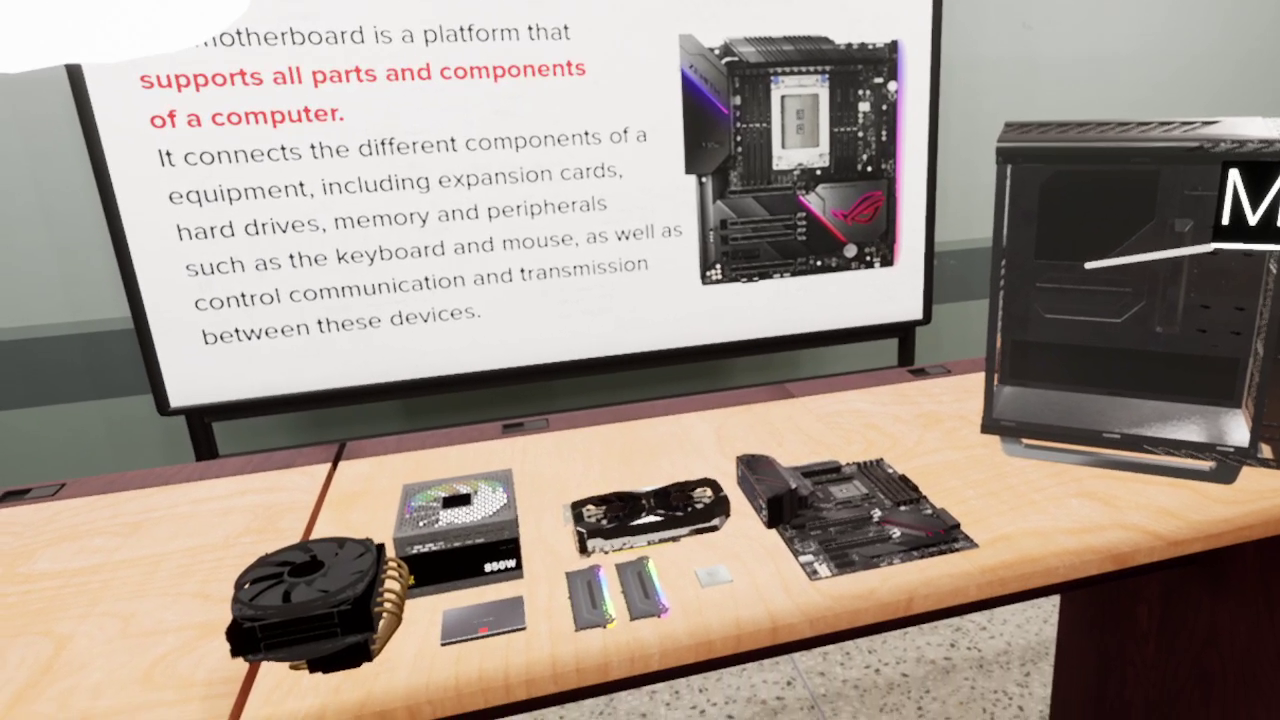
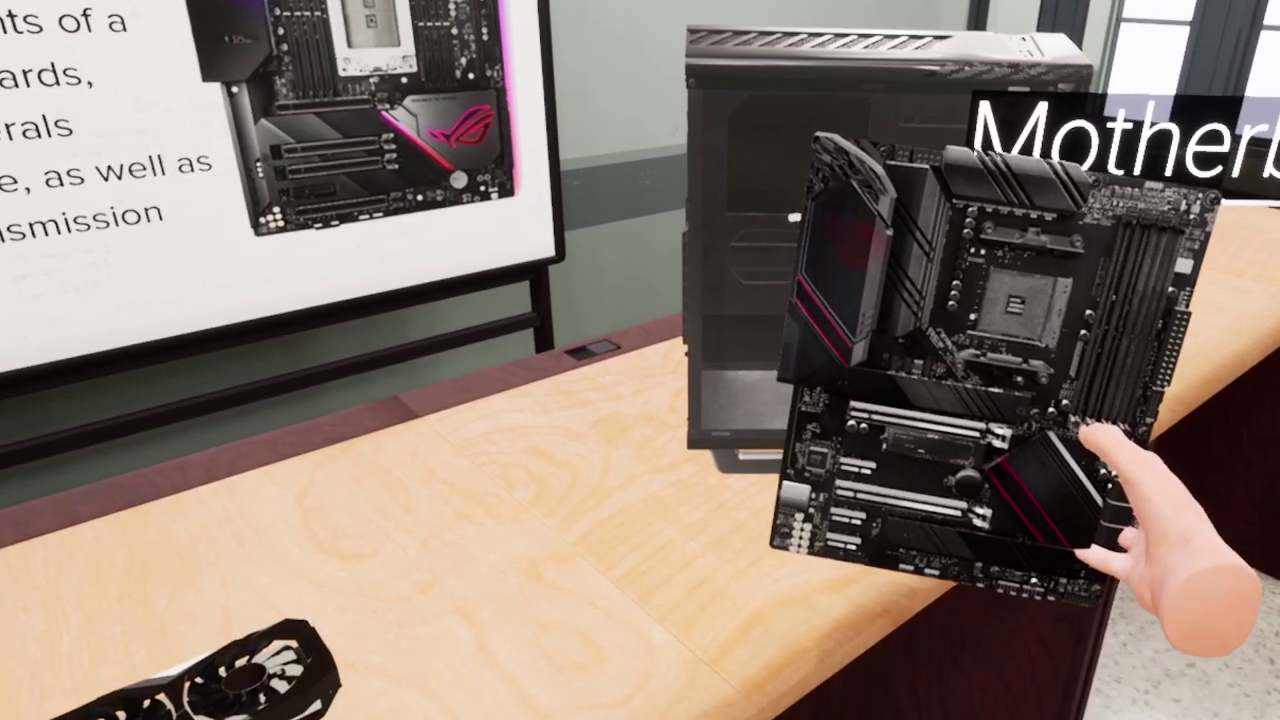
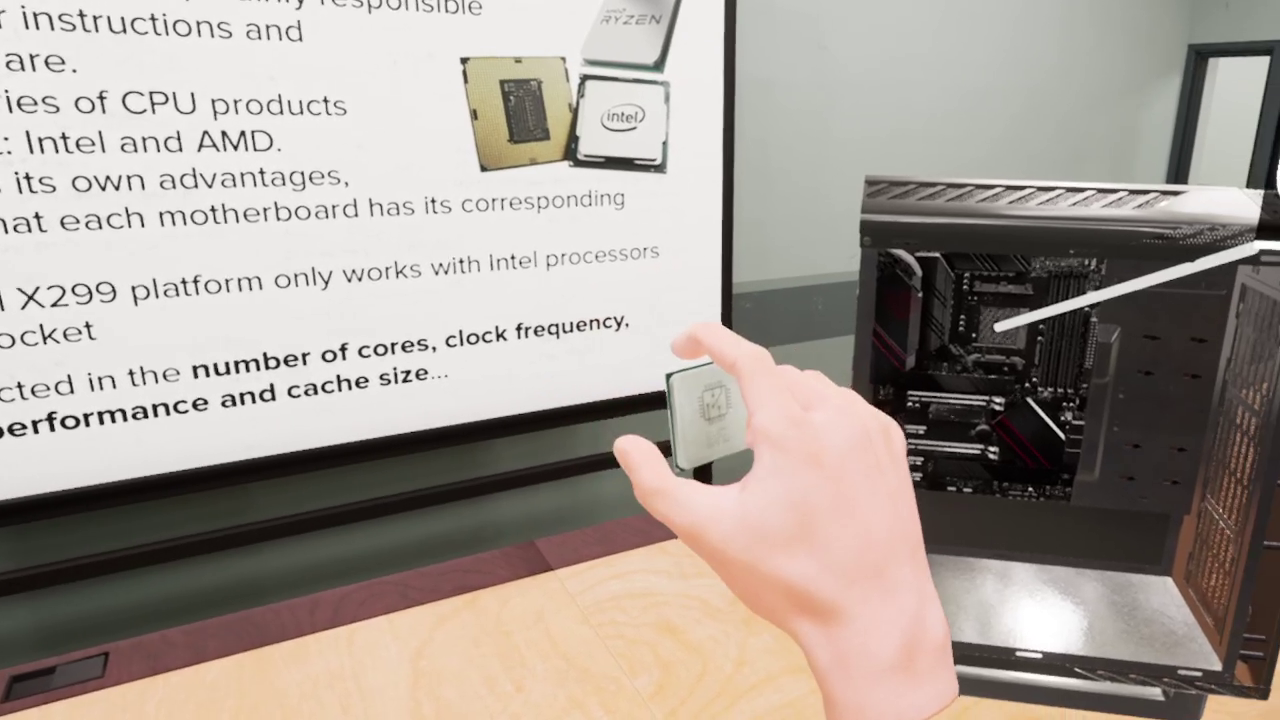
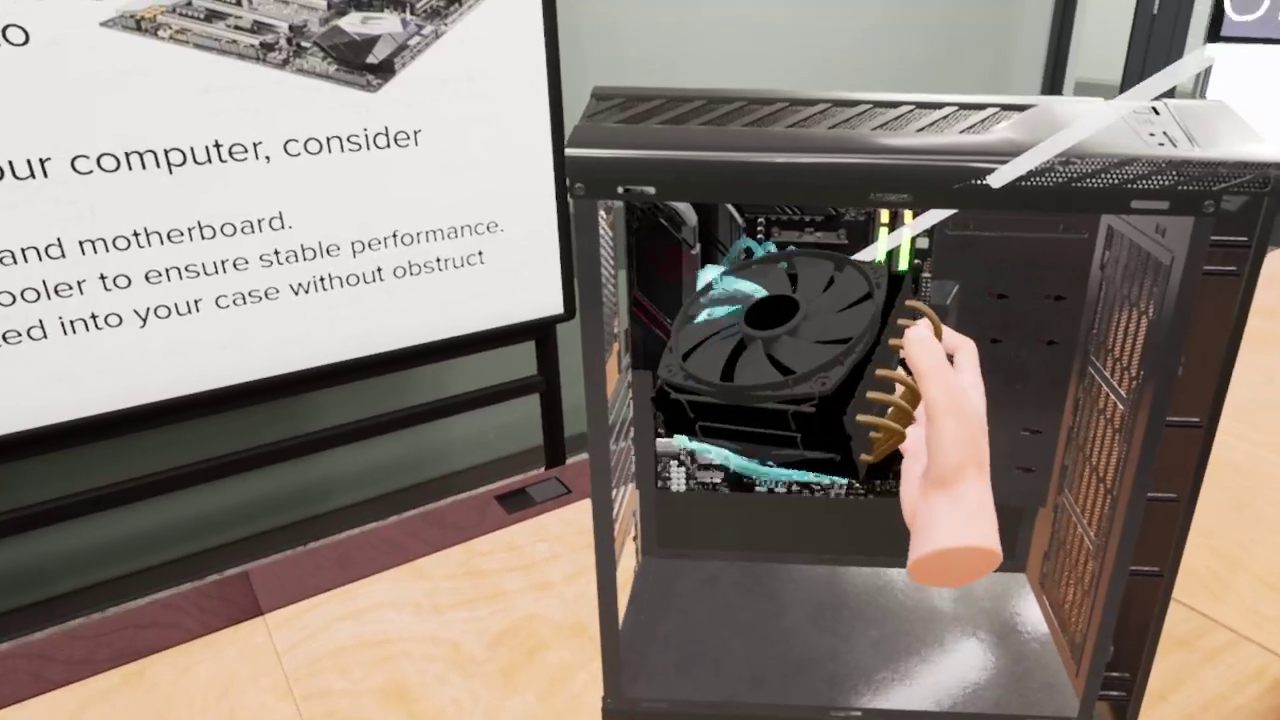
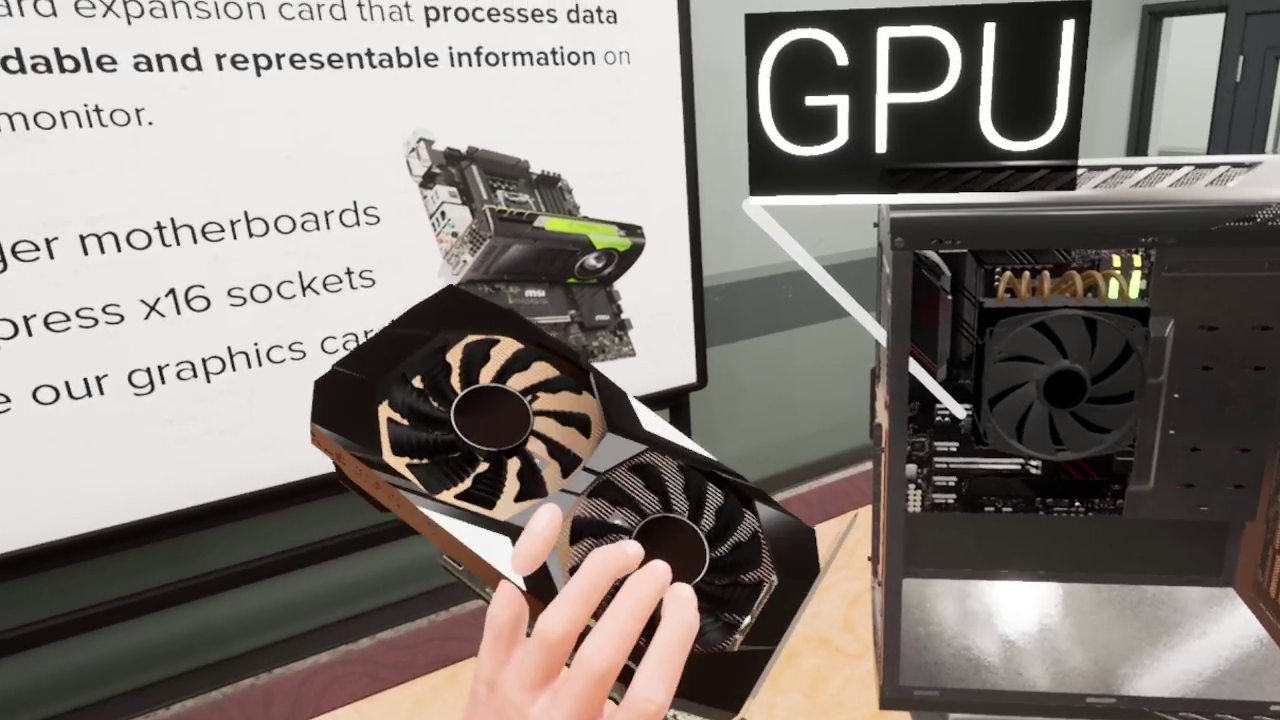
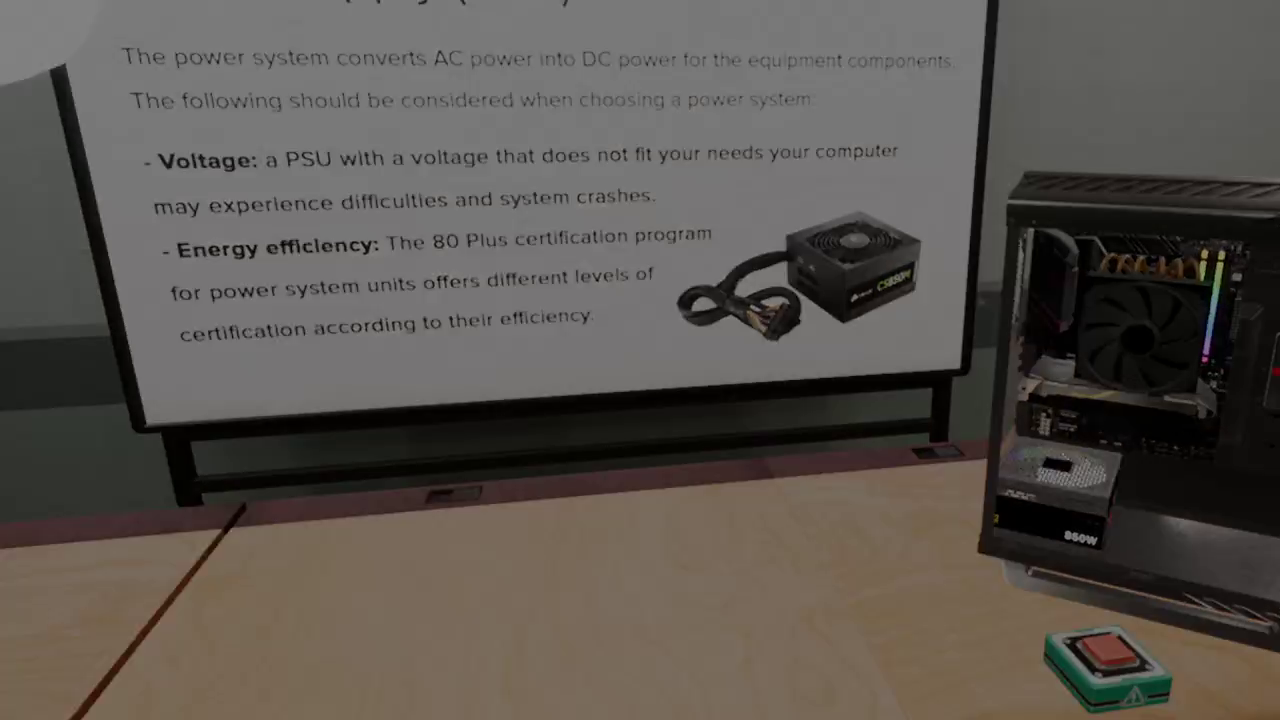
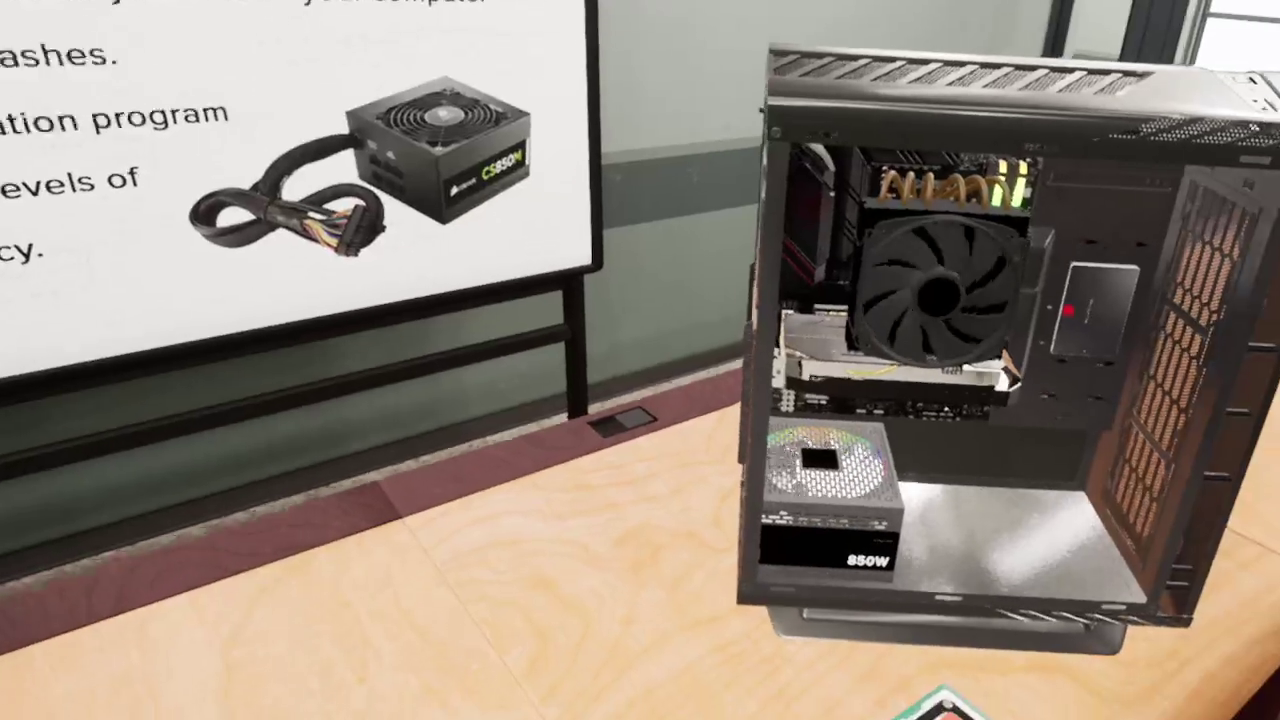
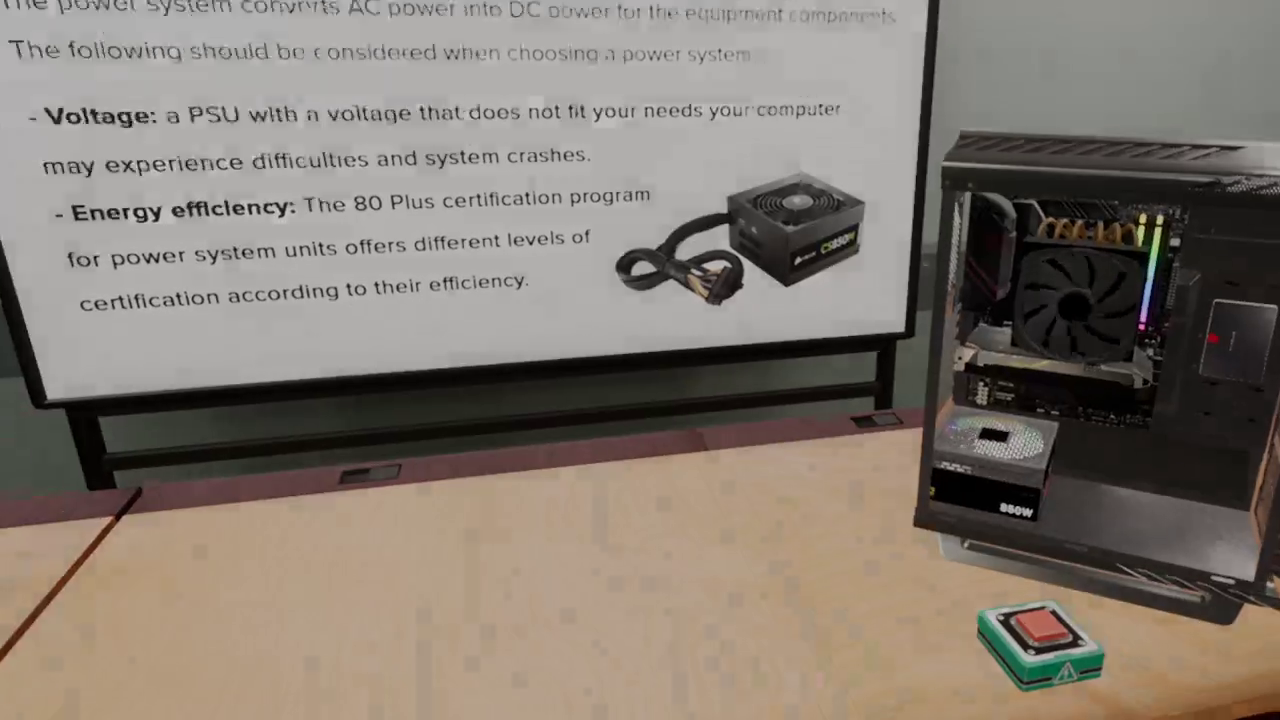
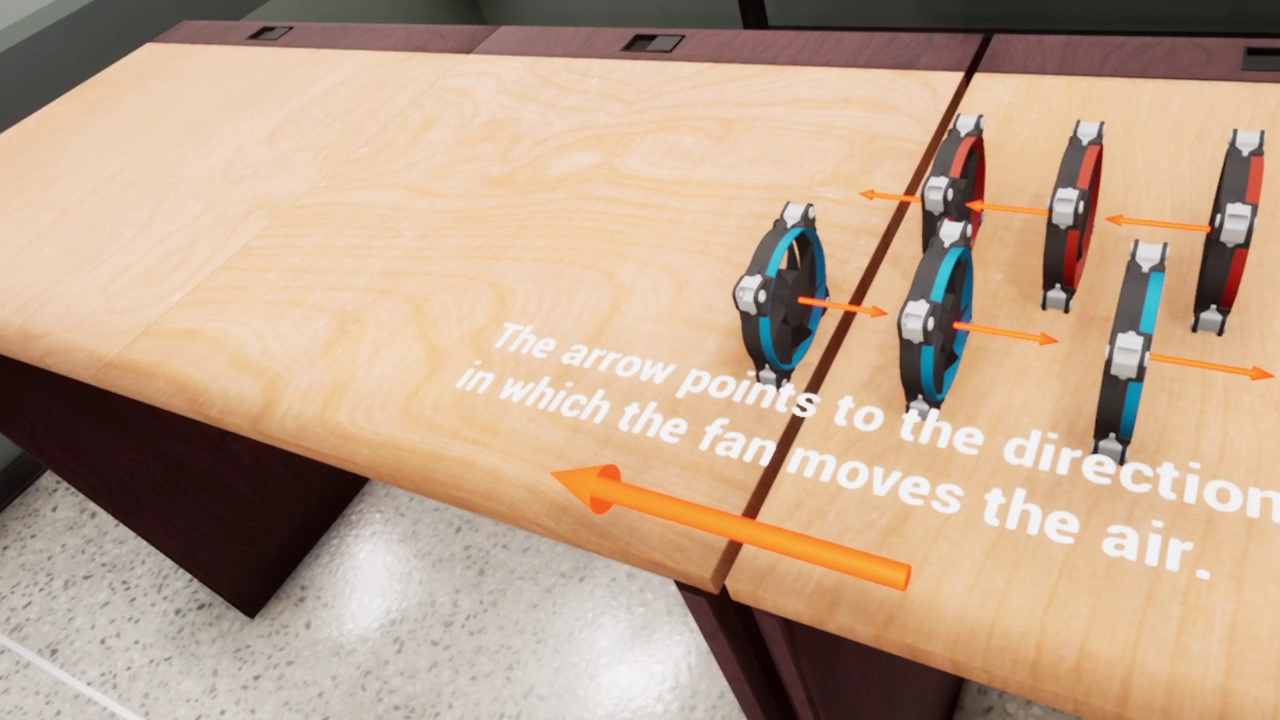
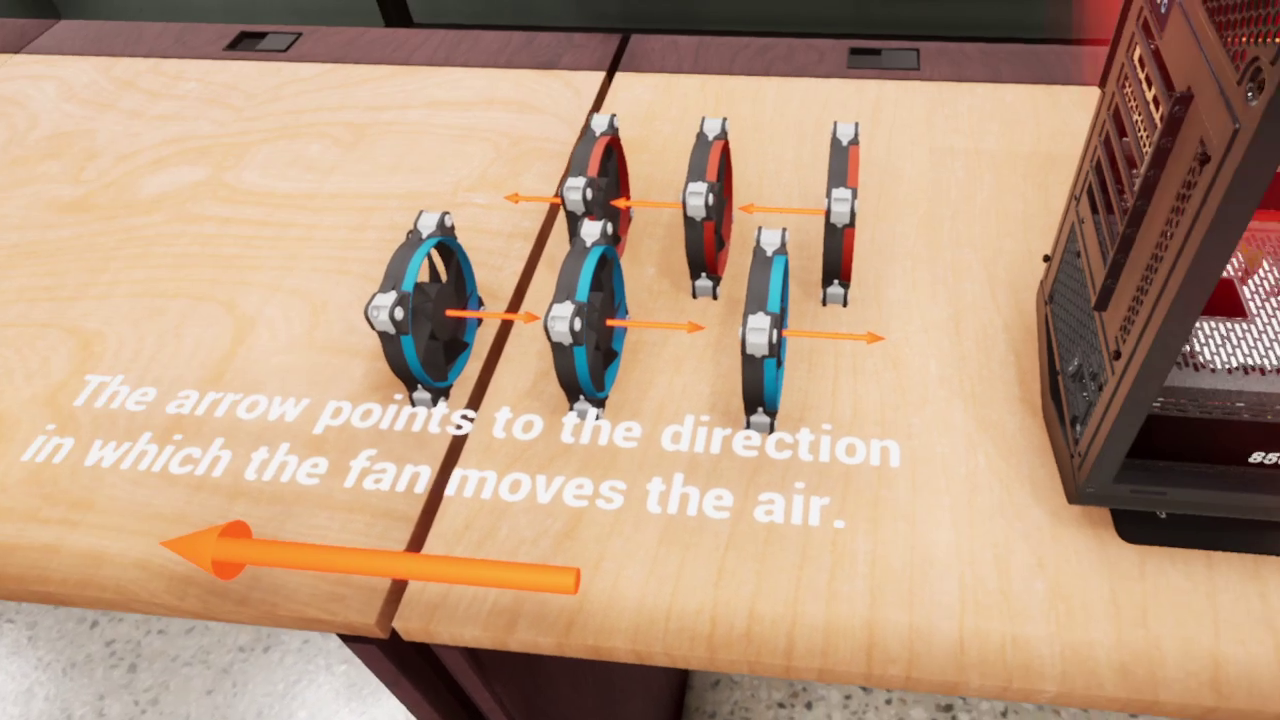
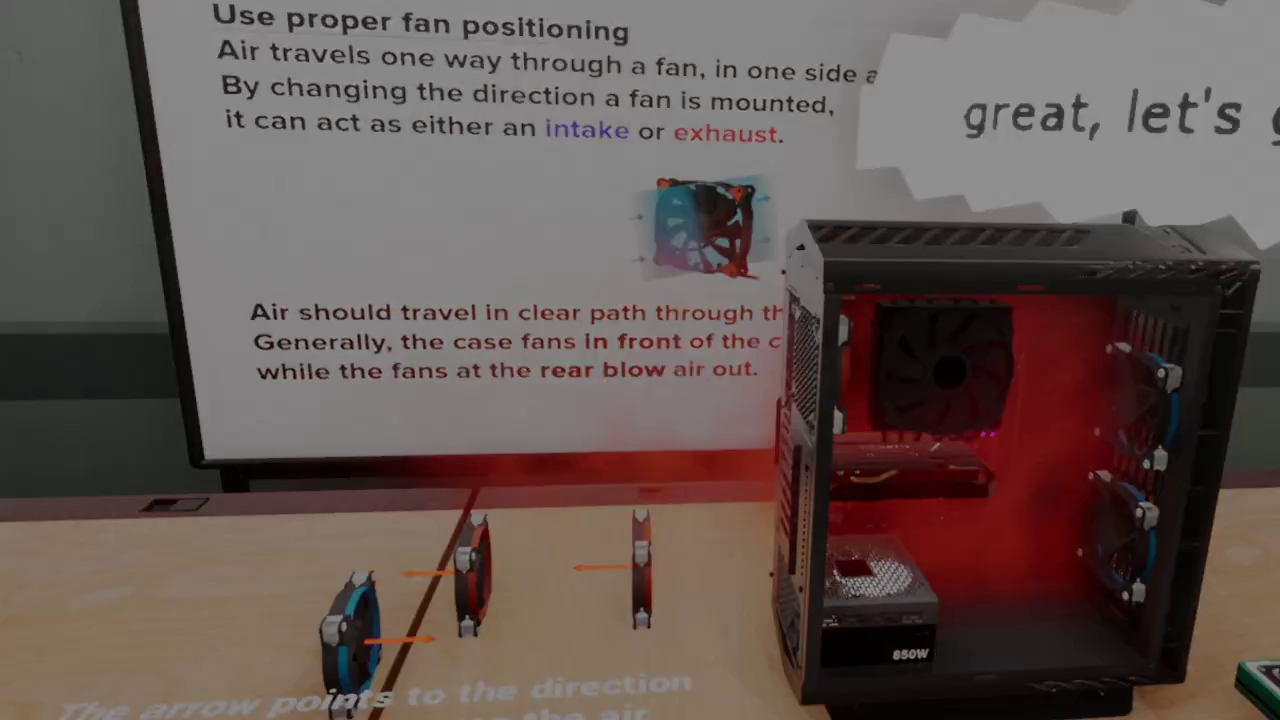
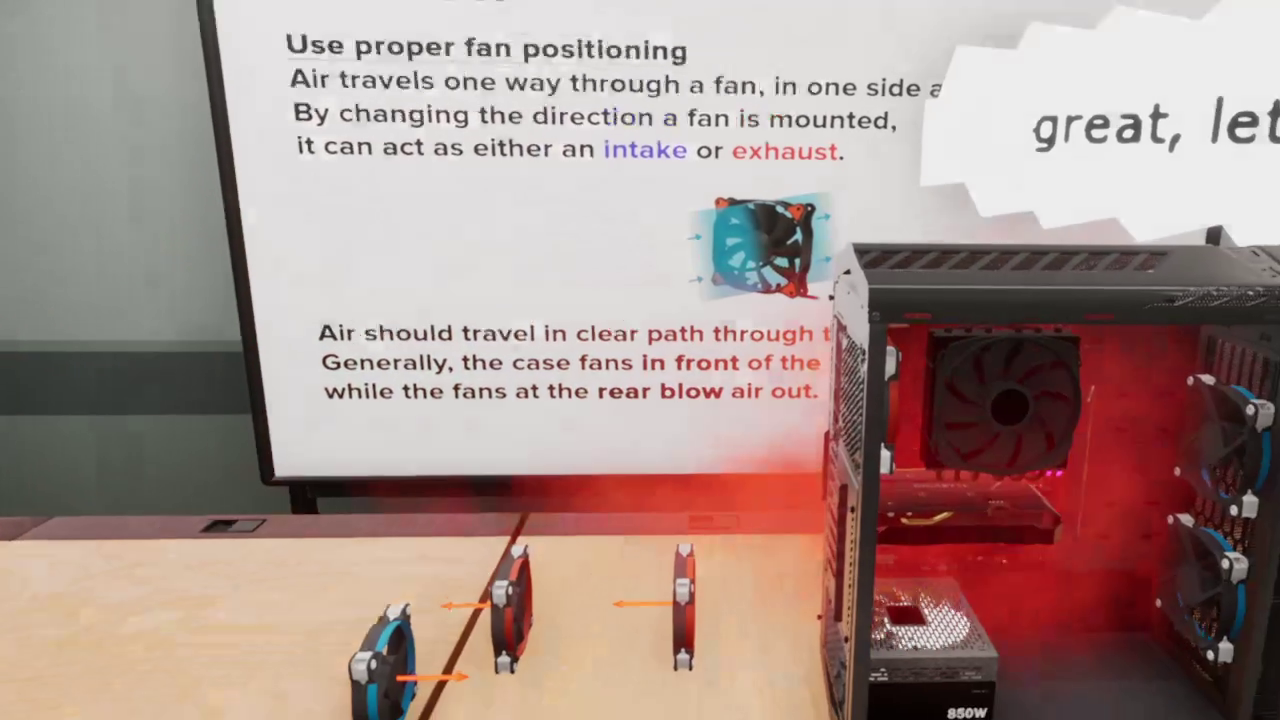
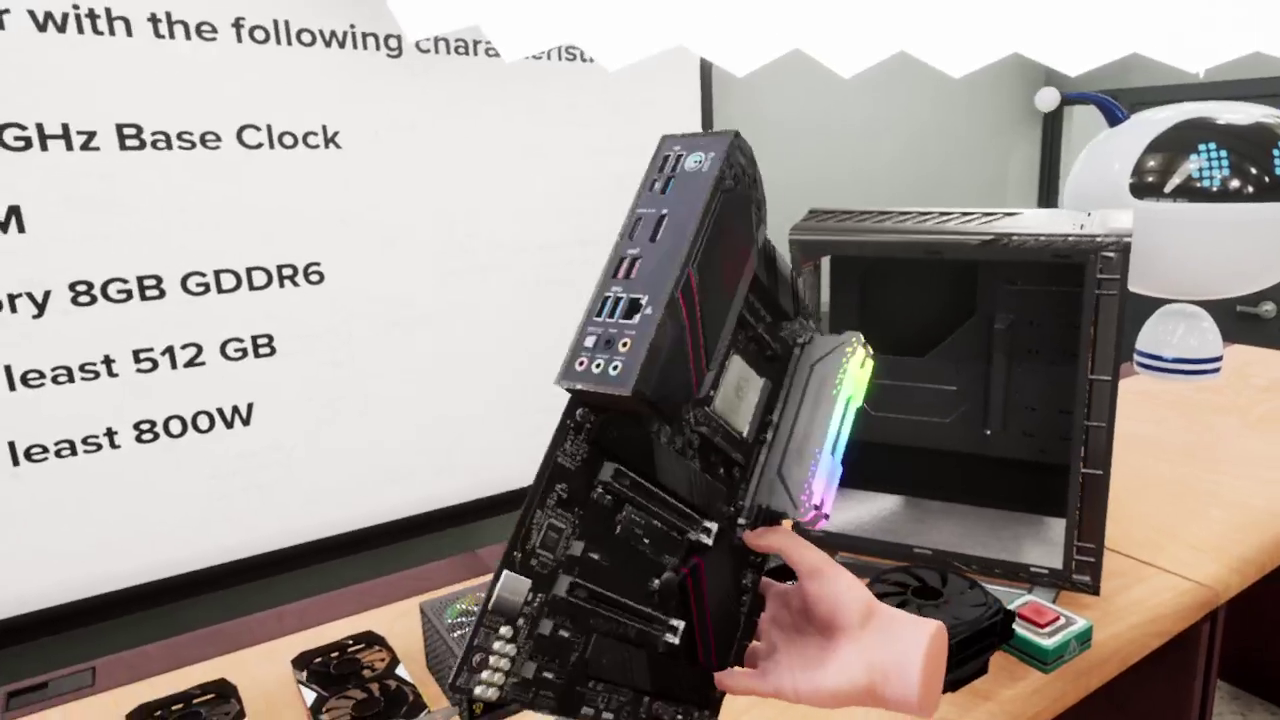
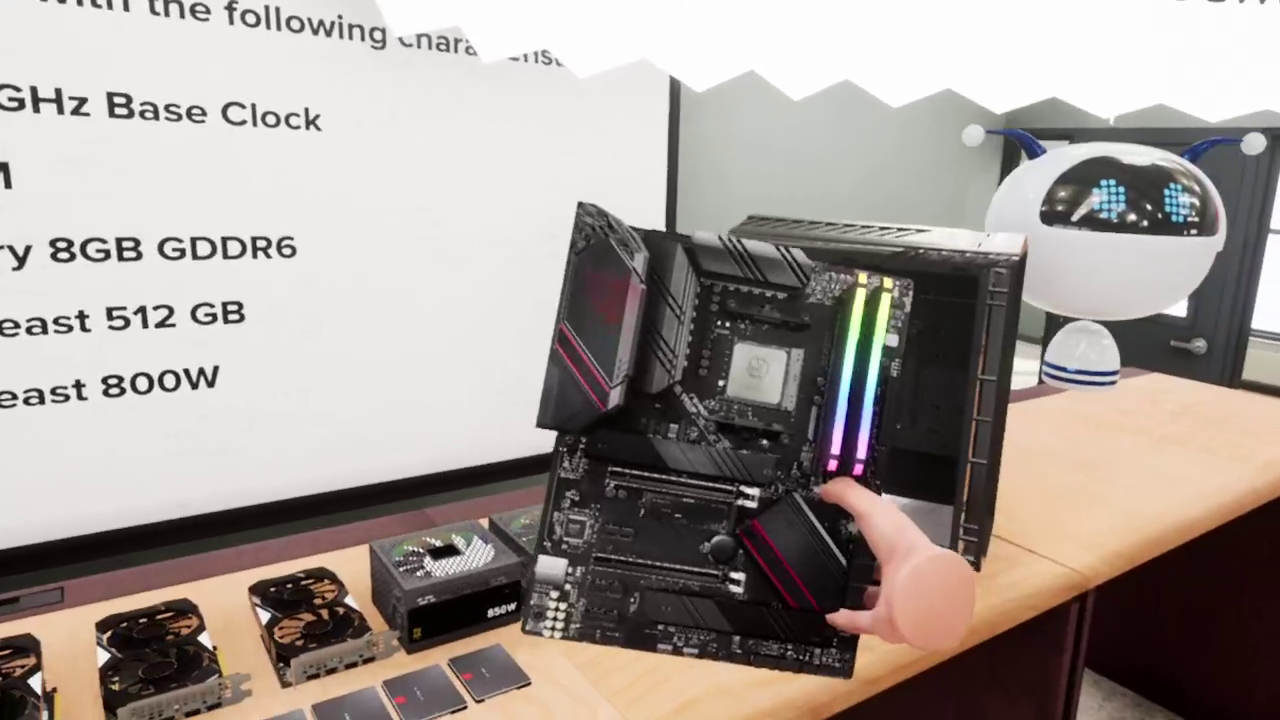
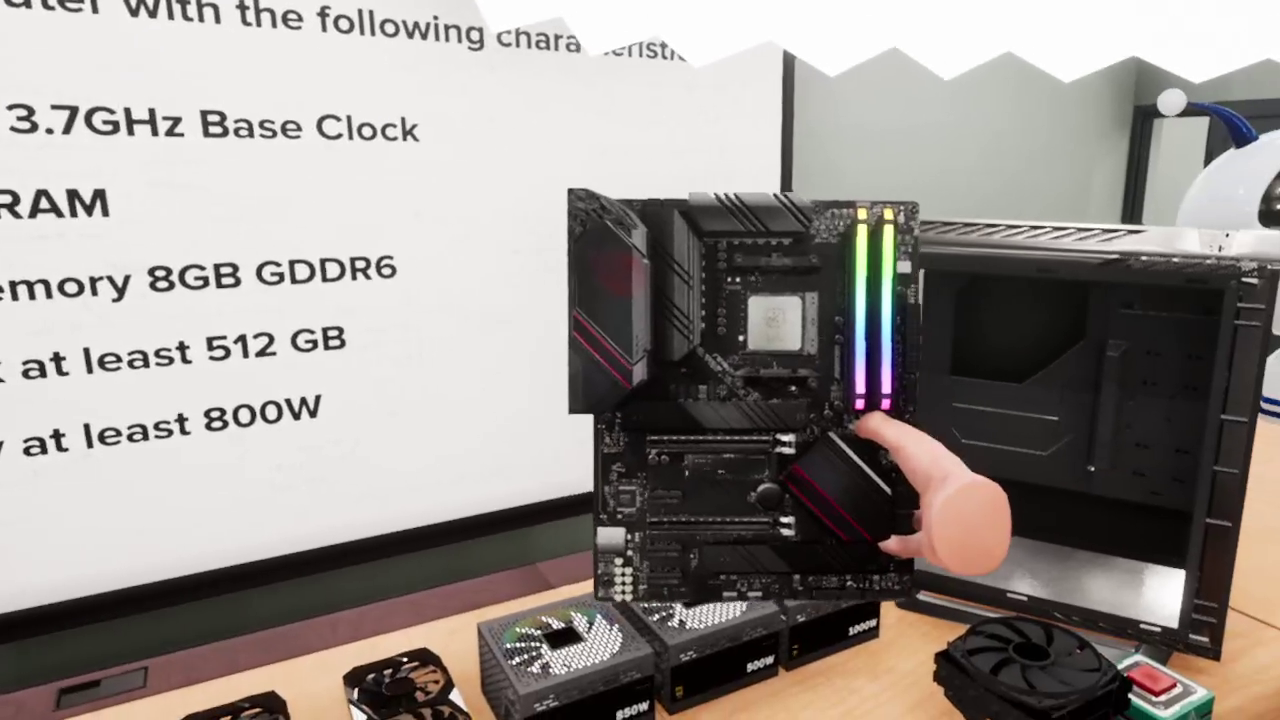
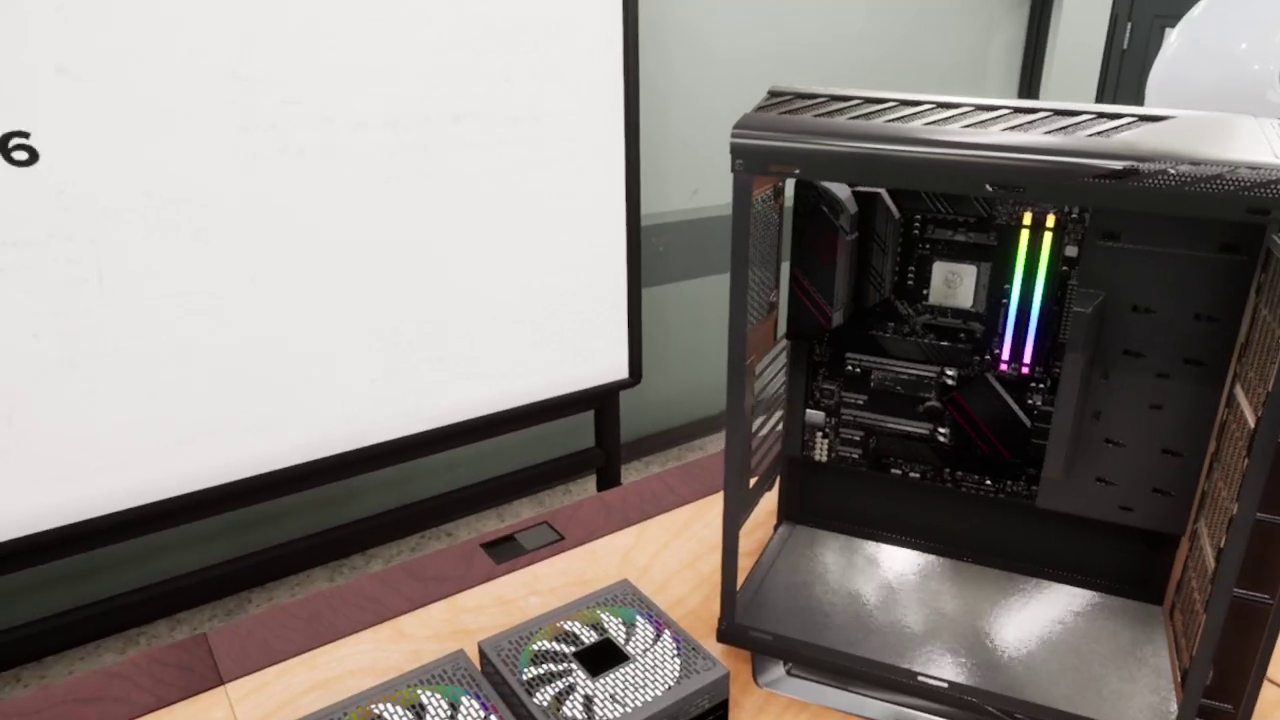
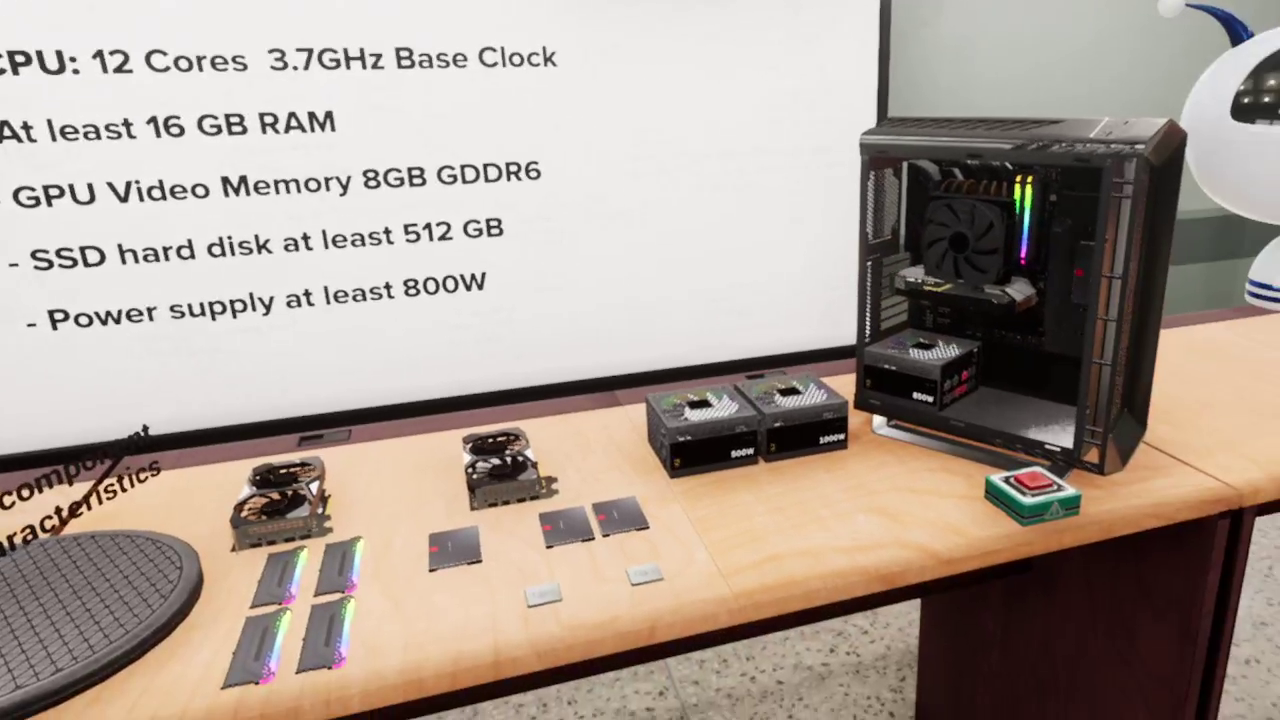
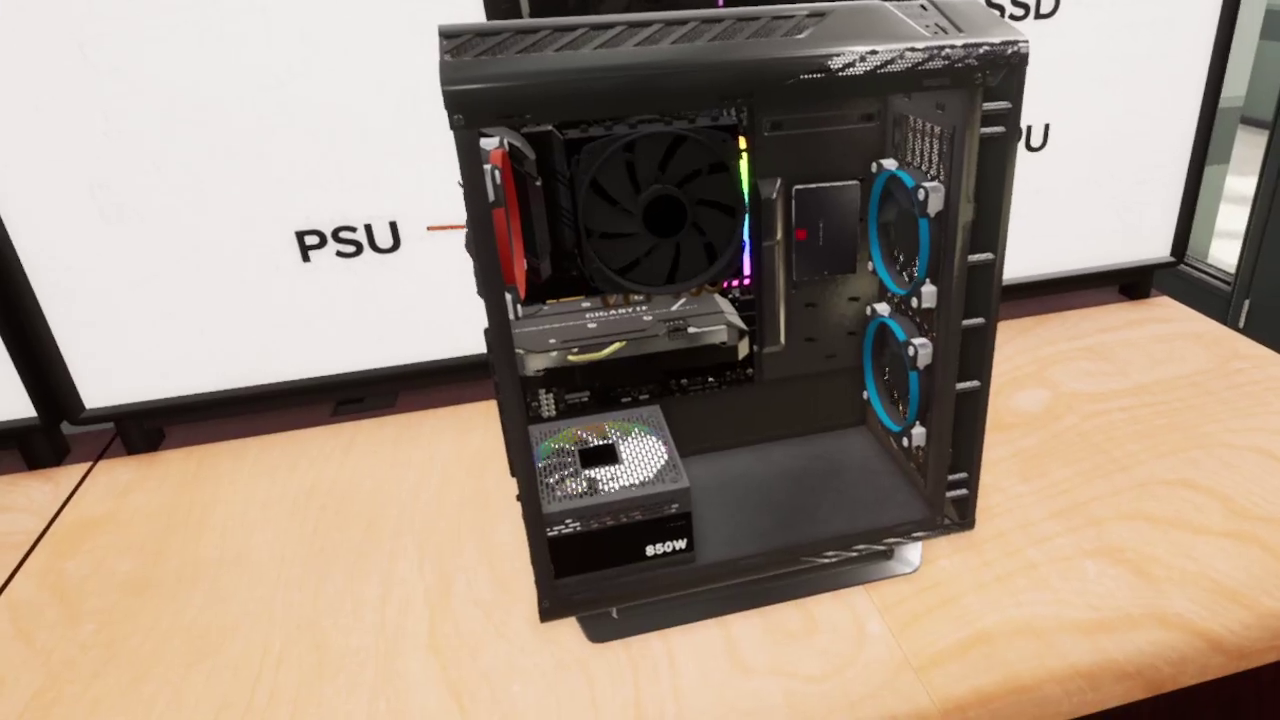
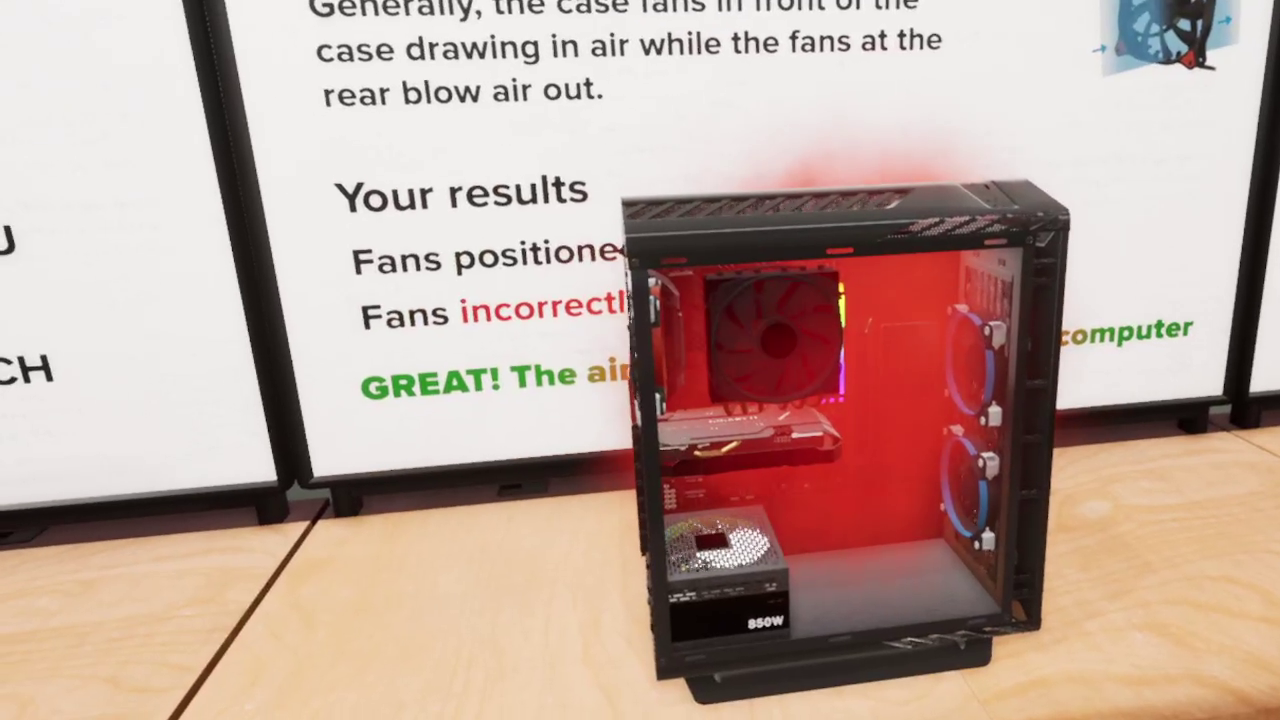
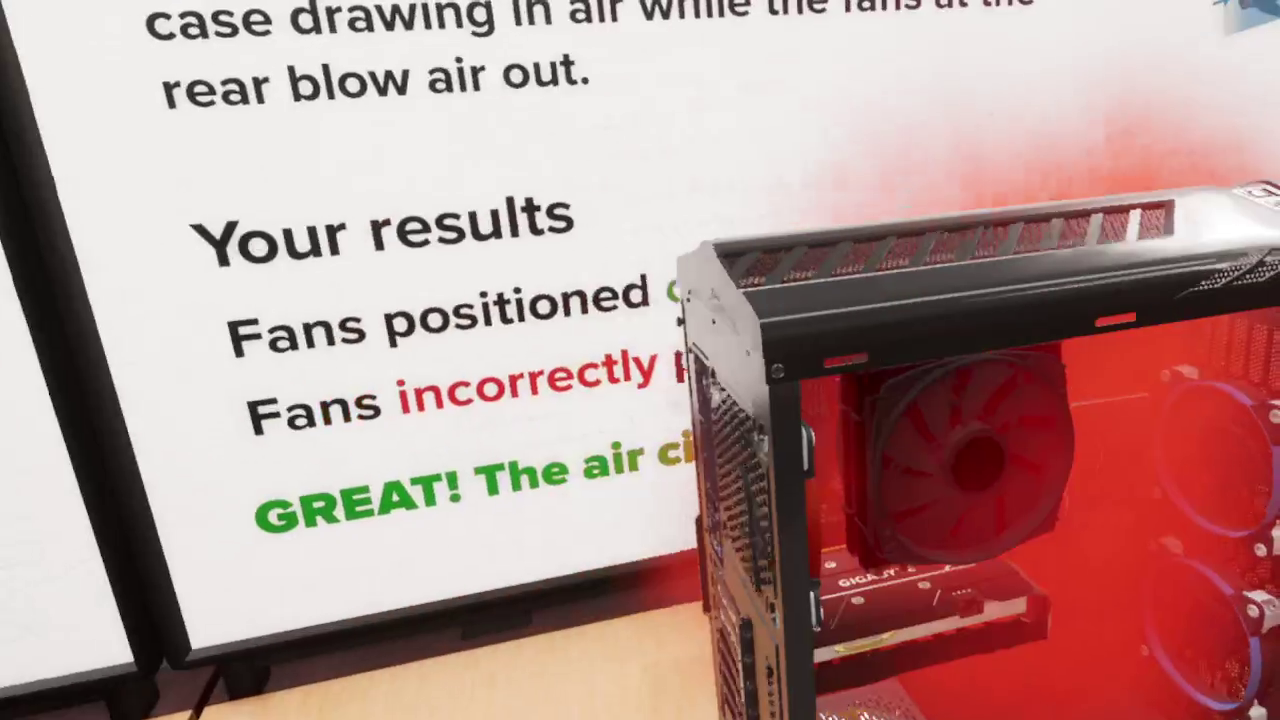
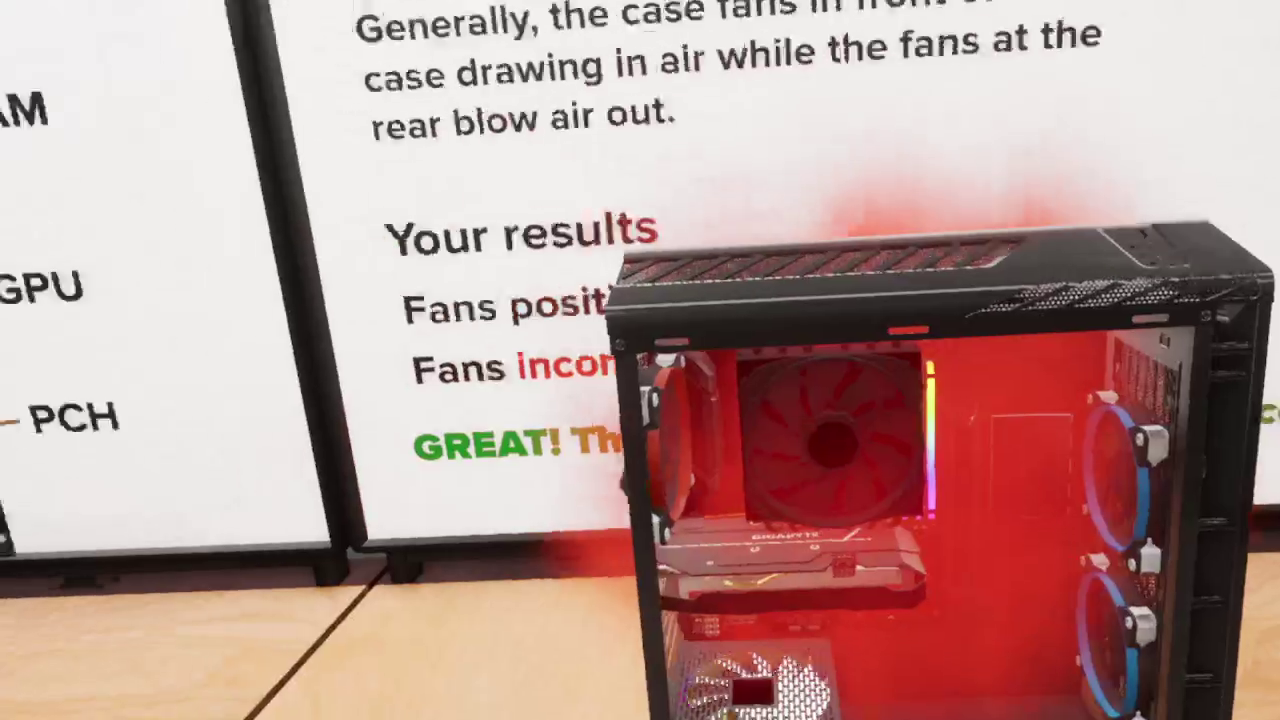
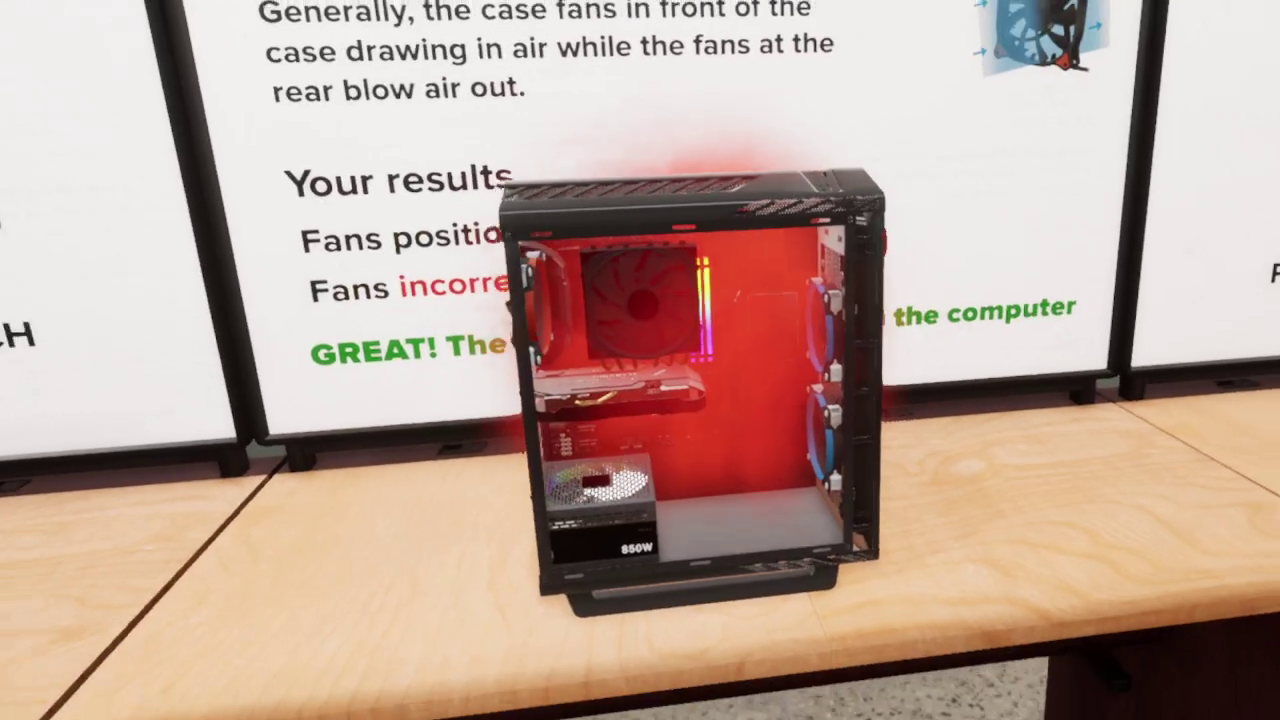
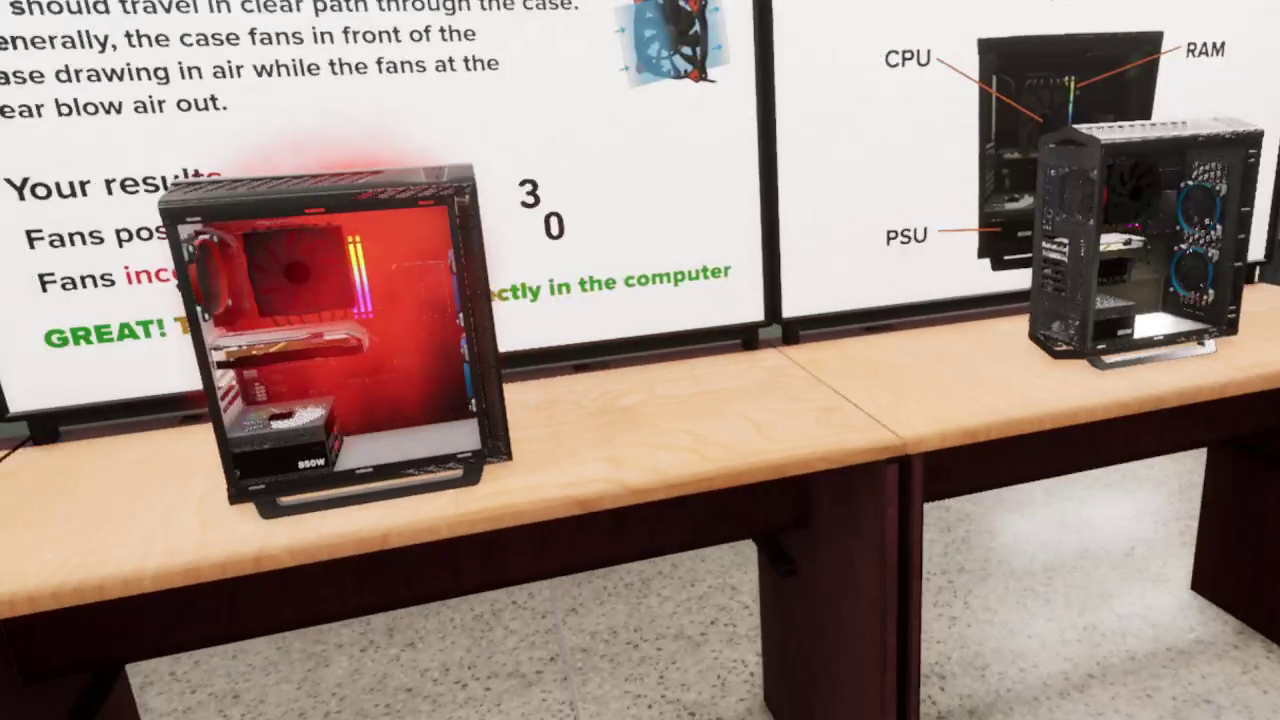
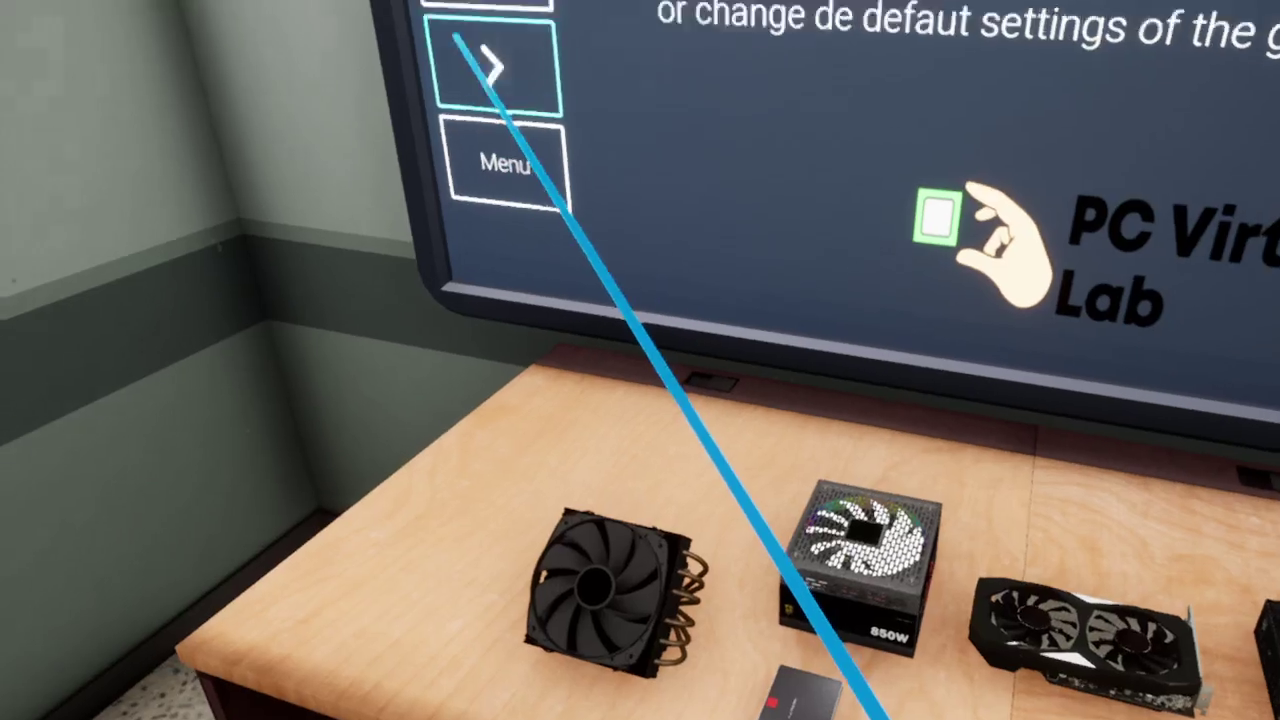
Lesson Plan
Immersive virtual reality environments create a very strong sense of presence and immersion. Nowadays, especially when student isolation and online autonomous learning is required, such sensations can provide higher satisfaction and learning rates than conventional teaching. However, up until the present, learning outcomes with VR tools have yet to prove their advantageous aspects over conventional teaching.
The project presents a VR serious game for teaching concepts associated with computer hardware assembly. These concepts are often included in any undergraduate’s introduction to Computer Science. The learning outcomes are evaluated using a pre-test of previous knowledge, a satisfaction/usability test, and a post-test on knowledge acquisition, structured with questions on different knowledge areas.
Immersive virtual-reality computer-assembly serious game to enhance autonomous learning

Post-test
The test included different questions from the pre-test, because equal tests can affect the learning evaluation
Features and results of the serious game
This design follows the idea that rather than better teaching of traditional knowledge, the real potential of VR is found in “learning by doing”, which is usually very difficult to apply in traditional classes. These are some of the keys we have found when using the serious game with our students
Student satisfaction
The game in both its desktop and VR versions significantly improved student satisfaction compared with the traditional teaching method
Remembering information
Slightly worse results of the serious games groups than the traditional learning group in remembering information
Visual recognition
Significantly better visual recognition than the group that received the traditional class
Game usability
The students thought it was significantly easier to interact in VR than the desktop PC version controlled by keyboard and mouse
Understanding
The immersion helps students to extract applied knowledge for real life
Performance
The VR group performed the exercise faster and made fewer errors than the students playing the same game on the desktop
VIDEOS OF THE BOTH VERSIONS
Virtual reality
Desktop PC
Developer
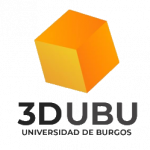
Editor

